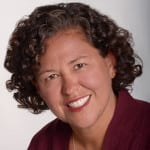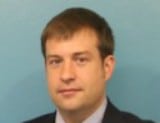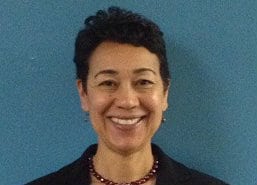This post is part of a series on Deeper Learning.
Update: The American Youth Policy Forum and the National Association of State Boards of Education invite you to a lunchtime book club discussion on September 9th, 2014, at AYPF’s offices. The lunch will take place from 12-1:30pm. AYPF’s offices are located at:
1836 Jefferson Place NW, Washington, DC 20036
After writing my book, Deeper Learning: How Eight Public Schools are Transforming Education in the 21st Century (co-authored by Dennis McGrath), I was honored that one of the reviewers, Warren Simmons, Executive Director of Annenberg Institute for School Reform at Brown University, placed our book in context of so many great leaders and researchers, such as Ted Sizer, Pedro Noguera, Gloria Ladson-Billings who in one way or another have advocated for many of the elements inherent in deeper learning. At the same time, it was a reminder that after 30 years Ted Sizer, and so many others after him, challenged the conceptions of what a successful high school looks like; they still aren’t the new normal. Loosely speaking, Sizer and other key thought leaders and researchers, believe(d) that schools should be places where students are known well; depth of knowledge vs breath of knowledge is prioritized; standards are reflected in what is taught; students demonstrate their mastery of knowledge; a student-centered culture infused with respect is prevalent, and teachers are involved in key decisions around teaching and learning.
I believe that deeper learning fully encompasses the past and present educational goals for secondary students, especially college and career readiness – mastery of essential academic content; thinking critically and solving complex problems; working collaboratively and communicating effectively; having an academic mindset, and being self-directed. Furthermore, the practices that we found across the eight different schools featured in the book were many of the same practices that have been advocated for over history as well as in current initiatives. For instance, a recent study by the Stanford Center for Opportunity Policy in Education (SCOPE) identified very similar practices and strategies as those identified in our book. We found that the eight schools profiled in our book are developing Deeper Learning through seven core strategies:
- Establishing a cohesive, collaborative learning community that sharply differs from the top-down national norm and where everyone is collectively responsible for one another’s learning;
- Empowering students to become self-directed and more directly involved in their own learning and development;
- Treating teachers as professionals, empowering them to be in charge of the decisions that most affect them and their students and providing them with structures to work together;
- Designing learning experiences that are meaningful and connected by integrating subjects and real-world issues;
- Extending learning beyond school by forming partnerships with businesses, nonprofit organizations, research institutions, and colleges and universities that support the culture and pedagogical focus of the school;
- Inspiring students by knowing them well for the purpose of understanding their learning style and interests to customize learning whenever possible to motivate each student; and
- Incorporating technology purposefully to enhance, rather than simply automate, learning.
Deeper Learning affords us the opportunity to leverage the best of what has come before us, such as the Annenberg Challenge Grants, the Gates Small Schools Initiative, the Schools for a New Society; as well as current philanthropic initiatives like Student Centered Learning, by Nellie Mae, Social Emotional Learning by the Raikes Foundation, Opportunity by Design by Carnegie Corporation, Linked Learning by the Irvine Foundation, Connected Learning by MacArthur, Next Generation Learning by the Bill and Melinda Gates Foundation. These past and current philanthropic initiatives along with the adoption of the Common Core State Standards (CCSS) in mathematics and English and the Next Generation Science Standards as a means to ensure all students are college and career ready, provides us with a historic opening to usher in a new mode of learning that reflects the times in which we live and puts the goal of teaching for deep understanding at the center of education. Yet, as Randi Weingarten, president of the American Federation of Teachers, puts it, “Even good ideas can be torpedoed by bad execution.” Getting the CCSS right is essential. One of the many reasons we wrote this book is to show parents, education leaders and policymakers how to “get it right” through examples of schools that had been doing just that (and more), well before these recent debates took hold.
But what will take to get it right – to implement these practices across all of our secondary schools? We need to identify systems to support these practices and transfer them across multiple schools within all of our states. As Warren Simmons stated in his review of my book, “We are far more adept at building working models of successful schools than we are at creating the systems that will make these schools the norm rather than the isolated educational lighthouses they tend to become.”
If we do want kids—particularly underserved students—to be college and career ready and equipped to take on the myriad challenges of the future, we must get education right. The time has come for the long view—a marriage, of sorts, between Sizer’s vision and the latest efforts to implement the Common Core standards. If you accept this marriage proposal, perhaps then we can provide the systems and resources to enable teachers to “teach deeply” for all students to be college and career ready.
Monica Martinez is co-author of Deeper Learning: How Eight Innovative Public Schools Are Transforming Education in the Twenty-First Century.





